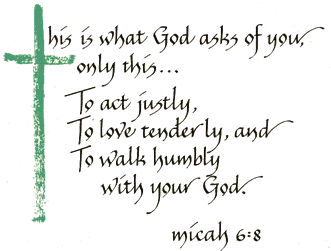catholicPittsburgh.org is the place for information, news, commentary, reflections and community building among the people of God who are renewing the Catholic Church in Western Pennsylvania.
More about us
Welcome ...
Partnering Groups
The following organizations are partners with catholicPittsburgh.org:
Shepherd As Metaphor
A Reflection for the Fourth Sunday of Easter (May 7)
by Greg Swiderski
Readings:
Acts 4:8-12
1 John 3:1-2
John 10:11-18
The full text of the readings can be found here.
Last week Alan Alda, formerly of MASH fame and now trying to present science in a popular manner and Brian Green, a scientist who has written about the String Theory to explain the universe, spoke on the Charlie Rose program. They said that metaphors were valuable to try to make the seemingly incomprehensible and sometimes arcane tenets of science available to the lay person.
However, they reminded us that all metaphors are inadequate and fragile when striving to make known the complexities of scientific knowledge.
Their insight might easily apply to our approach to the divine and in particular to John's gospel. The many "I AM" expressions (the way, the truth, the light; the bread of life, and today, the good shepherd) attempt to access the sheer incomprehensible and the awesome sacred. Perhaps Muslim practice parallels this when people honor the 99 names for the divine, each an attempt to the full truth.
What is inadequate about the shepherd? Well, first, most of us have never experienced shepherding. At what level, then, can we relate to this scriptural image? Is any effort limited?
I might bet that many preachers today want to present themselves or their institution as the shepherd and their listeners and members as the feckless sheep. We will tell you what to do for we know best. Such paternalism seems condescending and robs the individual or the congregation of its challenge to respond to its own conscience.
After honestly admitting these limitations, what emotional experience might this metaphor tap? How about security and unconditional love?
Our parents seem to be the ones who will make us feel welcome, secure. The newborn learns who these comfortable people are and hopefully feels at home in their presence. What happens when a parent abandons a child? What happens when a parent abuses verbally, physically, or sexually this person so totally trusting and dependent? What happens when a parent never touches, holds, hugs this fresh and tender youngster? What happens to the tenuous world of a child when the parents divorce so that the child or children find themselves overwhelmed with deep emotional trauma and unending doubts?
These and other questions arise. I suspect that these experiences, all too common in the human drama, might tell us why people seek fundamentalist religious certainty amidst the swirling, demanding, and often plastic lifestyle which suffuses our culture.
We might easily expect that our parents would offer unconditional love. However, our parents often place limits upon us, the ever repeated "NO" to what we are about. They need to protect us and teach us how to meander amidst the challenging human events of the real world. We also know that our parents were and are human; yet, we may have placed them upon pedestals: why else would most children have a difficult time imaging their parents having sex. So we learn to hide this or that from them. This seems normal, dare I say, even, healthy.
What about a mentor to whom we can say anything; even tell them about the conflicts we have with our parents; even trust him or her with our secrets and the stupid acts which we have done or words which we have said for which we really feel embarrassed or ashamed? Perhaps a trusted aunt or a long time neighbor, they offer a sacramental space where unconditional love seems not just a cute ideal but a real relationship.
As we continue to mature we also need to feel most at home, most welcome with ourselves. I must learn to trust my own "inner shepherd." This seems like a life time effort, one not for the faint of heart.
Perhaps Frederic Buechner, an ordained Presbyterian minister whose ministry is not expressed in preaching but in writing 32 books and memoirs helped when he told the Religion and Ethics Journal what he would tell young people seeking direction: when your deep gladness and the world's deep need meet, you learn what makes you happy and what the world needs done.
Our Eucharist feeds us for this journey of ongoing discovery and wonderful joy.
P.S. Rev. Buechner says that he wants these words on his tombstone: What's lost is nothing to what's found and all the death that ever was, set next to life, would scarcely fill a cup.
- By JoanHouk at May 6 2006 - 5:16pm
- Reflections
Micah 6:8

©1996 Cards by Anne
Used with permission